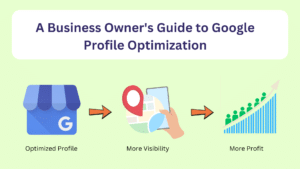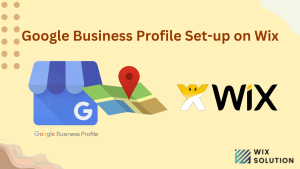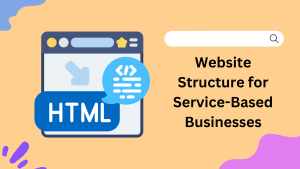Local SEO is a powerful strategy for businesses to attract customers searching online. This guide explores eleven practical Local SEO tips to boost your online presence and bring more customers. Whether you’re a seasoned business owner or just starting, these strategies can help you leverage the power of local search and gain a competitive edge.
Table of Contents
Toggle1. Create and Optimize Google Business Profile
A Google Business Profile is free for businesses to appear on Google Search and Maps. It’s like a mini-website for your business, where you can add more relevant things to your business.
Why Google Business Profile Matters?
Google uses information from your Google Business Profile (and other sources) to understand your business. So, the more details you provide, the better Google can connect you with potential customers who are searching for what you offer.

To create a Google Business Profile, you’ll need to provide some basic information about your business, including your hours of operation, logo, phone number, address, photos, services offered, website link, and service areas. You’ll also need to choose a business category that accurately reflects your core offering.
How can I Optimize my Google Business Profile?
There are several steps you can take to optimize your Google Business Profile. Here are some key areas to focus on:
- Claim your free Google Business Profile.
- Make sure all your business info is accurate and up-to-date.
- Add your logo, opening hours, and what you sell.
- Upload high-quality photos of your business.
- Ask customers to leave reviews – no matter good or bad! Respond to them all.
- Regularly post updates about your business using the Google Business Profile tool.
2. Get Relevant Local Citations
Local citations refer to online mentions of your business’s core information. These usually include the business name, address, and phone number (NAP).
Local citations can appear on various platforms, including local business directories (like Yelp and Yellow Pages), industry-specific directories, social media profiles, and websites that mention your business.

Local citations are important for local SEO because they act as trust signals for search engines. They also help people discover your business by showing your NAP information across various platforms.
Here’s how to find relevant local citations and ensure your information is accurate:
- Check and correct existing listings with a tool.
- Focus on top directories in your industry and location.
- List your business on platforms specific to your niche (e.g., Grubhub for restaurants).
- Also, don’t forget general sites like Yelp, TripAdvisor, and Foursquare for wider exposure.
3. Target Local Keywords
People in your local area search for businesses and information using specific terms called local keywords. Targeting these “local keywords” in your content can attract more local customers.
Local keywords make your content highly relevant to nearby searches. This increases your chances of ranking higher in local searches, including the coveted local pack on Google. This can lead to more website visits and, ultimately, more customers through your doors.
Target Local Keywords with Google Keyword Planner
It’s important to target keywords relevant to your local customers. Google’s Keyword Planner helps with this by letting you filter searches by location. This way, you can discover popular search terms in your region and build a targeted keyword list.

Once you have your local keywords, integrate them strategically throughout your website. This includes your meta content, website copy, and even URLs.
4. Get Reviews from Your Customers
Positive customer reviews are a goldmine for your business. They improve your ranking on Google My Business and convince more local customers to choose you. A BrightLocal survey found that 85% of consumers trust online reviews as much as recommendations from friends and family.
Here are some tips to get those glowing reviews rolling in:
- Ask in person: When a customer completes a purchase, politely ask if they’d be willing to leave a review.
- Targeted email/text requests: Send follow-up emails or texts requesting reviews, but only after ensuring customer satisfaction through a quick internal survey. This avoids reaching out to unhappy customers.
- Respond to all reviews: Show professionalism by thanking reviewers for their feedback, both positive and negative. Address any complaints helpfully and sincerely.
Keep in mind: Google allows you to request reviews, while Yelp discourages the practice.
5. Optimize Your Website for Voice Search
Voice search is booming, and it’s not going anywhere. People increasingly use voice assistants like Alexa and Siri to find information online. This means businesses must adapt their search engine optimization (SEO) strategies to capture these voice searches.
Why Voice Search Matters?
Imagine a customer asking their phone, “What’s the best [your business type] near me?” If your website isn’t optimized for voice search, you might miss out on this crucial opportunity. Voice searches tend to be longer and more specific than typed searches. People ask questions in a natural, conversational way, like “who,” “what,” “when,” “where,” “why,” and “how.”
To optimize a website for voice search, focus on questions with long-tail keywords that match how people search by voice. Use natural language that mimics spoken conversation.
6. Optimize Your Website for Mobile
The way people access the internet has dramatically shifted. Studies show a growing trend towards mobile browsing, with mobile visits surging past desktops in recent years. This means having a mobile-friendly website is no longer optional; it’s crucial!
Optimizing your website for mobile is essential because it captures local customers searching nearby and improves your SEO ranking for a wider audience.
Here are some key elements for a great mobile website:
- Speedy Load Times: People are impatient, especially on mobile data. Aim for a website that loads in three seconds or less.
- Big, Readable Fonts: Tiny text is a nightmare on small screens. Use fonts that are easy to read without zooming in.
- Focus on Essential Content: Mobile screens have limited space. Prioritize the most critical information and avoid unnecessary clutter.
- Intuitive Design: Make sure your website is easy to navigate and use on a touch screen.
By following these tips, you can create a mobile-friendly website.
7. Prioritize High-Quality Local Backlinks
Backlinks are simply links from other websites that point to yours. Search engines like Google consider them a significant factor in ranking sites. Links from high-quality websites signal to Google that your content is valuable and trustworthy.
To get these valuable backlinks and boost your local SEO, take a proactive approach: Reach out to other websites and request that they link to your content. This is far more effective than waiting for people to stumble upon your content organically.
Tips for Local Link Building Outreach:
- Create unique emails for each website you contact.
- Build rapport before requesting a backlink. Try to establish a connection. Comment on their content or follow them on social media.
- Explain how linking to your website benefits them or their audience.
- Use the Link Building Tool to keep track of your outreach efforts.
8. Audit Your On-Page Local SEO Health
One-page SEO focuses on optimizing the elements within your website to improve search engine ranking. While Google Maps and Business Profiles are crucial for local businesses, on-page SEO shouldn’t be neglected. It plays a significant role in ensuring your website appears in relevant local search results.
The key to a thriving local SEO strategy is identifying and addressing any on-page SEO issues on your website. This is where a comprehensive on-page SEO audit comes in.
Here’s how to get started:
Run an On-Page SEO Audit: Use a reputable online tool and enter your website’s domain. The report will analyze your website’s SEO strategy, backlinks, technical health, and content, pinpointing areas for improvement and prioritizing pages that need the most attention.
It will also provide specific recommendations for optimizing each page’s title, meta descriptions, headers, and content for local search terms.
9. Create and Publish Locally Relevant Content
Locally relevant content is information you create and share that specifically relates to your business and the geographic area it serves. This helps search engines understand that your business matches local searches well.
Why Locally Relevant Content is important?
There are two main reasons:
- Higher Local Ranking: Local content with relevant keywords improves your ranking in local searches.
- Connect with Locals: Share community-focused content to build trust and relatability.
If you want to create locally optimized content, keep these tips in mind –
- Target local keywords in your content and landing pages.
- Create blog posts about local events, customers, or businesses.
- Highlight your local connection and encourage local reviews.
- Get involved in the community and feature your local staff.
10. Add Local Business Schema to Your Website
Have you ever wondered how search engines understand what your website is about? Schema markup is a way to give them a helping hand. It’s like adding extra labels to your content, making it easier for search engines to categorize and display your information.
For local businesses, there’s a specific type of schema called “local business schema.” This schema helps search engines understand your location, opening hours, and what kind of business you are.
While schema markup isn’t a direct guarantee of higher ranking, it can definitely help! By making your website easier to understand, you might improve your ranking for relevant searches. You could even land a spot in the coveted local pack on Google search results.
11. Use Location Pages or a Location-Specific “About Us” Page
Do you have multiple stores in the same area? The location pages are a must-have for your website! These pages act like digital storefronts, providing critical details for each location, such as:
- Operating hours
- Complete address and phone number
- Unique descriptions highlighting what makes that location special
- Customer testimonials to build trust
- Current promotions to attract new customers
- Information on parking availability is a frustration for many
Remember, for location pages to be effective, they need unique content for each store.
A location-specific “About Us” page is an excellent alternative for businesses with a single location. Think of it as your chance to connect with the local community. For instance, a flower shop could use this page to mention their involvement in town events or highlight locally sourced blooms.
Conclusion
In a nutshell, getting local SEO right is crucial for businesses to stand out in their area. These tips offer simple ways to get noticed online, attract more customers, and stay ahead of competitors. From improving your Google Business Profile to using local keywords and getting customer reviews, each step helps you rank better in local searches.
If you need extra help with local SEO, check out our SEO services. And start by getting a free website check-up to see how you can improve your online presence. Ready to make a mark in your local market? Let’s go!






